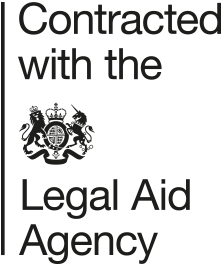What Does Negligence Mean?
Negligence is a term that you may well be familiar with. There are plenty of solicitors who advertise that they can help with negligence claims. But what is negligence, where did the concept arise, and what constitutes a negligence claim in the eyes of the law?
What is negligence?
The simplest definition of negligence is the failure to take proper care over something. In law, the term means a breach of a duty of care, which results in damage or harm.
The history of negligence
The concept of negligence came about under English law. Although what is known as Common Law had long punished acts that had caused harm, negligence didn’t become part of that law until the 18th century, when it was also acknowledged that failing to act could be just as detrimental.
Originally negligence applied to those who were responsible for performing an agreed service, which they failed to do so. Over time, the definition changed slightly to include that there should be an element of care or skill included in performing that service, which became the concept of duty of care.
Today, negligence is an established part of law, with five elements applied to determining whether negligence has occurred.
Duty of care
The first element is whether the person (defendant) providing the agreed service owed a duty of care to their client (claimant). This is based on whether a reasonable person would assume that a certain duty of care would be expected in those particular circumstances, for example, in the case of a doctor undertaking treatment of a patient.
Breach of duty
Once it is established that the defendant owed the claimant a duty of care, the next step is to prove that the defendant failed in their duty to the claimant. Again, the test is whether a reasonable person would have expected the defendant to understand that their actions, or lack of, were likely to cause damage or harm to the claimant. This test applies regardless of whether the defendant caused harm deliberately or unknowingly.
Cause in Fact
The claimant must then prove that the harm or damage they suffered was as a direct consequence of the defendant’s actions. This is often referred to as ‘but for’ causation, in that the claimant would not have suffered the harm were it not for the defendant’s actions. For example, that they would not have been injured had the defendent used the correct safety equipment.
Proximate cause
Proximate cause is the extent to which a defendant is responsible for damages suffered. The defendant can be held responsible only for the harm suffered as a direct result of their actions. For example, if a defendant damaged a piece of equipment, they could not be held responsible if the claimant was involved in a road accident when they took that piece of equipment to be fixed. The original damage is the responsibility of the defendant, but not the subsequent accident.
Damages
The final element is that of damages. It is not enough that the defendant has failed to exercise a reasonable duty of care. The claimant must prove that they have suffered a legally recognisable harm as a result of the defendant’s actions. The most obvious types of harm are injury or damage to property, but may also include psychological harm or financial losses.
If you think you may have a professional negligence claim then Robinsons Solicitors’ specialist solicitors can help. With extensive experience of handling professional negligence claims of all types, we will assess your case and sensitively guide you through the claim process.
No win no fee
Most professional negligence claims are against solicitors, surveyors and medical practitioners. All are required to have professional indemnity insurance to cover them against any claims. This makes such claims (subject to legal merits) ideally suited to Conditional Fee Agreements (commonly also called “no win no fee”) as if successful the insurance company will pay the winning claimants costs. At Robinsons Solicitors we have successfully run a large number of cases on this basis and are happy to discuss with you if your case is suitable for a Conditional Fee Agreement.








